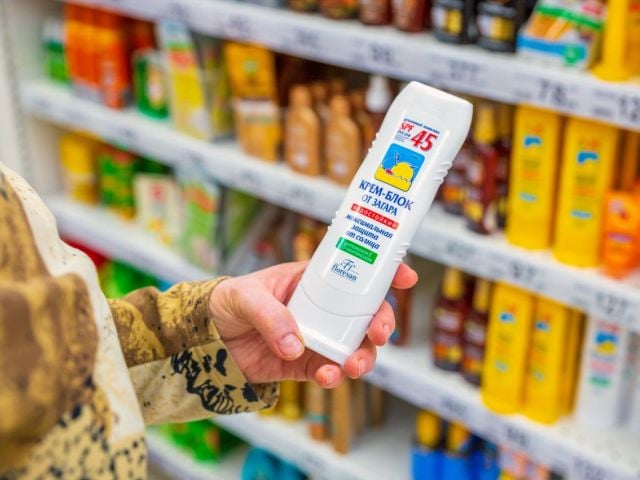WASHINGTON – The Environmental Working Group applauds much-needed legislation introduced today to increase the Food and Drug Administration’s oversight of infant formula safety and supply, after the crisis that left infant formula shelves across the country bare for months.
The bill, the Keep Infant Formula Safe and on the Shelves Act, by Rep. Rosa DeLauro (D-Conn.) would increase the frequency of inspections at infant formula facilities, allow unannounced on-site inspections, make available to the FDA all tests conducted by companies for pathogens, and require comprehensive food safety audits of companies if problems are detected.
“EWG applauds Rep. DeLauro for increasing scrutiny of the country’s infant formula facilities,” said Scott Faber, EWG’s senior vice president for government affairs. “The crisis that has crippled the ability of parents across the country to find the formula they need to feed their babies could have been avoided if the FDA had the necessary resources and leadership structure to make food safety a priority.”
The bill would also require the FDA and other federal agencies to set up a system to monitor infant formula supplies to avoid shortages.
EWG has urged FDA Commissioner Robert Califf to fix the FDA fragmented leadership that contributed to the infant formula shortage crisis. And EWG has said Congress should step in to resolve the problem if Califf refuses to act.
The formula crisis stems from Abbott Nutrition’s discovery of the dangerous pathogen Cronobacter in its product, which spurred a voluntary recall.
But the FDA shares the blame, as it waited months to inspect Abbott’s formula production facility after learning of potential contamination. And after its inspectors confirmed the contamination, the FDA waited weeks before alerting the public.
“The FDA missed important signals that this facility and its formula were in serious trouble,” Faber said. “More frequent inspections will help, but they will not address the FDA’s failure to use data from inspections, consumer complaints and whistleblower reports.”
Abbott received 17 consumer complaints between 2019 and 2021, including 15 complaints of infants testing positive for another pathogen, and one complaint related to Cronobacter. The company also found Cronobacter in two batches of formula, the first just one day after an FDA inspection in 2019.
A whistleblower warned the FDA in October 2021 that Abbott had falsified records, released untested formula, used lax cleaning practices, misled auditors, failed to take corrective measures and lacked good systems for tracing potentially contaminated products.
But it wasn’t until 2022 that the FDA concluded Abbott had failed to maintain a clean and safe environment in its infant formula production facility.
“The infant formula crisis is the result of a bigger crisis at the FDA,” Faber said. “Despite major food safety reforms enacted by Congress in 2011, our food supply may not be any safer than it was then. The FDA needs more funds for food safety, but it also needs a food safety leader who will make sure food safety is a top priority.”
The Obama administration created a new position of FDA deputy commissioner for food to oversee food safety. But the Trump administration dismantled many reforms aimed at improving food safety. Rather than give the deputy commissioner even more power, especially over food safety inspections, the Trump FDA reversed the Obama-era decision.
The Biden FDA has so far refused to make changes at the top of the agency, despite calls from states, industry, consumer and public health advocates and others to do so.
One reason for these most recent failures is a lack of funding. As Congress finalized the Food Safety Modernization Act, or FSMA, key legislators refused to support the user fees that typically fund FDA activities – like drug and medical device reviews, even though food safety fees have the support of many food industry leaders.
As a result, the FDA is not inspecting enough food manufacturing facilities. Despite the inspection mandate included in FSMA, the percentage of food facilities inspected after enactment of the reforms went down.
###
The Environmental Working Group is a nonprofit, non-partisan organization that empowers people to live healthier lives in a healthier environment. Through research, advocacy and unique education tools, EWG drives consumer choice and civic action.



